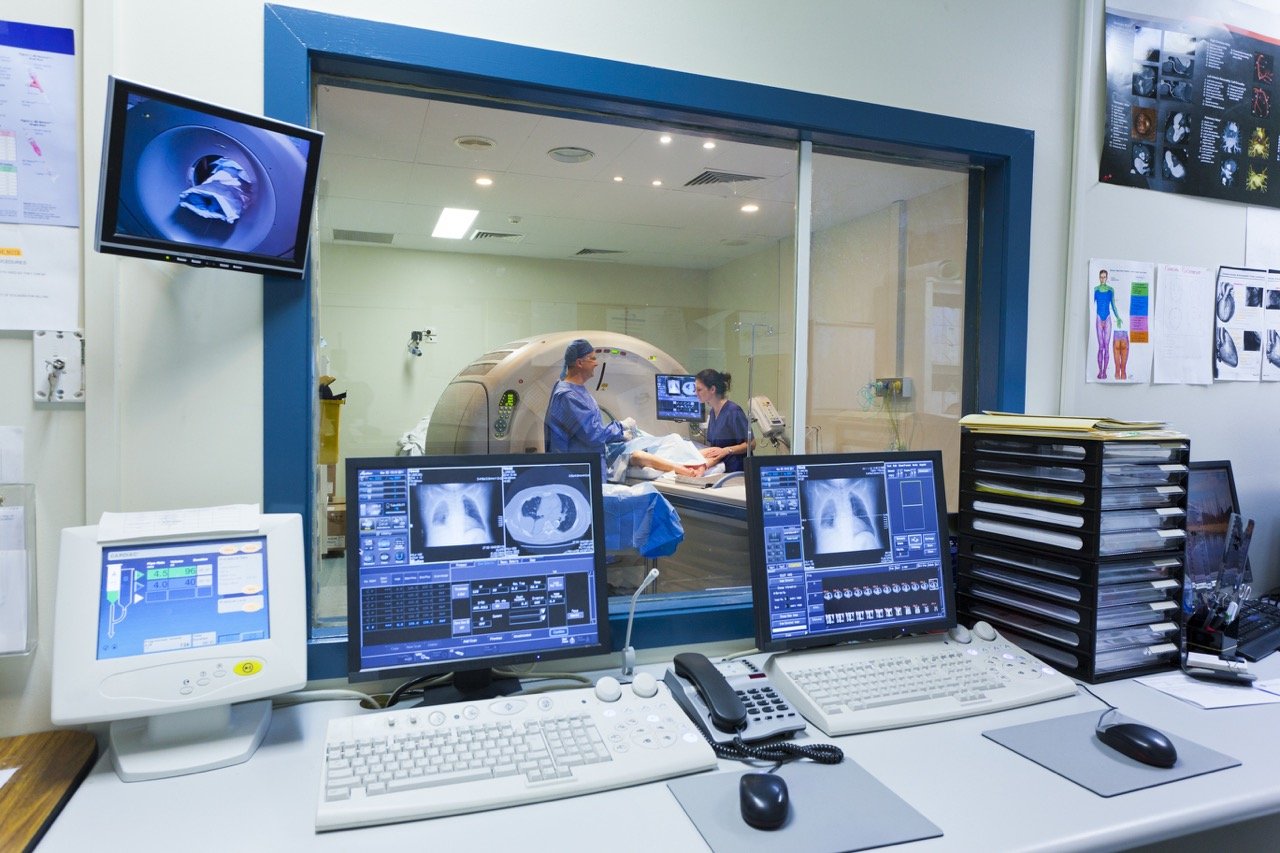Turkey has recently become one of the the favorite places in the world in Oncology (Cancer) treatment, thanks to its experienced doctors, clinics and hospitals with advanced researches, cutting-edge technology, and quality treatment processes. Here you can read our ultimate guide on oncology (cancer) treatment in Turkey, Istanbul, including prices, cost, the best oncology clinics, hospitals and doctors in Turkey, Istanbul with local advice.
What Is Cancer?
The body comprises cells that join to form tissues that come together to create organs. In this cycle, cancer actually begins at the cellular level, not in organs and tissues. These cells usually form, mature, divide and produce new cells as required by the body. They grow old, die, and are eventually replaced by new ones, disturbing the cycle, especially when the body creates excessive new cells or old ones don’t break down properly.
When these abnormal cells proliferate unchecked, a lump of tissue called a tumor results.
- Tumors can be benign or malignant.
- Malignant (cancerous) tumors pose a severe threat to life. Despite occasionally being able to be eliminated from the body, however, they grow again.
- Cancerous cells can harm neighboring organs and tissues by invading them.
- They can develop new tumors and spread to neighboring and distant organs.
What Causes Cancer?
Cancer is formed following a very intricate series of mechanisms. It’s now recognized as a hereditary illness, which implies that cancer cannot arise without genetic alterations in a normal cell. The progression of carcinogenic effects leads to the development of cancer. Different defense mechanisms are used to rectify each of the abnormalities seen during cancer development, and our immune system also actively contributes to identifying and eradicating these abnormalities. Cancer can still spread despite these, though.
The immune system’s weaknesses and the inefficiency of defense systems are some critical causes. As such, the cells that have developed cancerous characteristics are given a chance to multiply excessively, resulting in the disease patterns we associate with cancer. According to scientific research, the probability of having cancer is increased by the following factors:
External Factors (85%): Smoking, alcohol, chemicals, radiation, some illnesses, poor diet, air pollution, inactivity, and being overweight are some external factors, to name a few.
Internal Factors (15%): Immune inadequacies, genetics, hormonal and metabolic abnormalities, modifications, and alterations; elements can cause cancer by acting singly or in combination.
Stages of Cancer (Tumor) and How Staging Is Defined
Because it is essential to comprehend the crucial factors to decide whether cancer patients should undergo therapy or not, for cancer diseases, based on the findings of numerous scientific investigations, a variety of staging systems have been created to understand if it’s the most successful kind of treatment, and how long they might expect to live.
According to tumor features such as diameter size, lymph node involvement, and M=distant metastasis (abbreviated TNM), in solid organ malignancies (or cancers), there are 4 stages and subgroups, as named 1-2-3-4. Gynecological malignancies are also staged using the FIGO approach.
Alongside staging, another crucial method is grading solid organ tumors from 0 to 4 according to the tumor’s degree of differentiation (differentiation) from best to worst. Patients with stage 1-2 early-stage cancer and good grade (0–1) tumor types in this evaluation form have considerably more significant rates of cure with therapies, as well as very long survival times and survival rates.
Only surgical or occasionally radiation therapies are sufficient for the majority of early-stage malignancies. In therapies for intermediate and advanced malignancies with stages 3–4 and/or grades 2-4 cancers, chemotherapy is frequently added. During the therapy, patients with middle-stage cancer face more challenging medical conditions, and they appear to have shorter survival times and rates than those with early-stage cancer.
The World Health Organization Staging System, sometimes known as WHO, is used for blood malignancies, and the Ann Arbor Staging System is preferred for lymph node cancers.
The disease is classified as early-middle-advanced stage according to the lymph node and blood cancer staging system, and treatment is planned appropriately. According to the tumor grade, radiation and chemotherapy therapies will be added to surgery for brain cancer patients from first through fourth-degree tumors. Staging is crucial in assessing cancer patients so that the best diagnoses and judgments may be made. The staging evaluation should be the most crucial procedure an oncologist does during a cancer diagnosis.
Cancer in the World
Out of all other diseases, cancer has been ranked as the second largest cause of mortality worldwide after cardiovascular disorders. The most prevalent cancers globally are breast cancer in women and lung cancer in men. In certain parts of the world, different cancers are more frequently seen.
There has been a rise in several cancer forms, including stomach cancer in East Asian communities, cervical cancer linked to HPV in South Asia, cancers linked to hepatitis, HIV, and other viruses in African groups, and breast and colon cancer in advanced western cultures.
Breast, colon, and stomach cancers are on the rise worldwide. When we examine the prevalence of cancer, we find that men are more likely to develop lung-bronchial and prostate cancers, while women are more likely to develop breast and thyroid cancers. Also prostate and colon cancers are on the rise worldwide.
According to the growth in life expectancy, food, exposure to environmental carcinogenic agents, and the frequency of cancer-related virus infections, differences in the incidence of different cancer types have been found worldwide.
What Is Oncology?
Oncology is the area of medicine that focuses on tumor research. It studies, treats, diagnoses, and prevents cancer. A medical doctor is called an ”oncologist” when they’re specialized in oncology. The name derives from the Greek word o (ónkos), which can signify swelling, “tumor,” “volume,” or “bulk.”

What Academic Fields Deal with Oncology?
Radiation oncology, medical oncology, and surgical oncology deal with cancer therapy. This group has numerous surgical specialties, such as Orthopedics, Neurosurgery, Thoracic Surgery, General Surgery, etc. The treatment and follow-up of patients can be more closely monitored through collaborative cooperation. The removal of the patient’s existing tumor and the accurate diagnosis of the disease are accomplished through surgical oncology.
Patients diagnosed with cancer after undergoing a surgical treatment or those with a disease that has gone beyond surgery continue to get treatment with cancer medications and radiotherapy.
Medical oncology (sometimes known as pediatric oncology in cases involving children) handles drug treatment for cancer, while radiation oncology handles radiotherapy. These processes make it clear that working together across medical specialties is necessary to treat cancer.
FAQs About Cancer and Oncology Therapy
What should I do if cancer is thought to exist or is confirmed?
As there are experts in each department, a medical oncology specialist specializing in the monitoring and therapeutic management of cancer patients should be consulted.
How should I choose my course of treatment when there are so many recommendations?
The ideas coming from the environment of the patients can be pretty varied, perplexing, and even disheartening when it comes to a severe illness like cancer. At this stage, receiving a second opinion on the patient from a medical professional with subject-matter expertise could help improve the efficacy of the medication and comfort.
What will my cancer therapy entail for me?
Patients may experience surgery, radiotherapy, chemotherapy, radioactive medication treatments, or some interventional radiological techniques during the course of their treatment.
What departments are engaged in the treatment of cancer?
Radiation oncology, medical oncology, and surgical branches (organ-specific tumor surgery units, such as gynecological and surgical oncology).
Do all three treatments—surgery, radiation, and chemotherapy—have to be used?
No. The appropriate course of treatment depends on the type of cancerous cells present, the organ from which it has spread, and the disease’s stage.
Is it harmful to go under the knife?
Contrary to what is commonly believed, surgery can cure a condition when performed by a skilled and experienced surgeon.
How is the sequence of treatments decided upon?
The oncology patient’s current treatment strategy, and the treatments that will be used with a multidisciplinary approach and coordinated with the involvement of the pertinent branches in the oncology councils established in the pertinent center, as well as their order, are decided.
Chemotherapy—is it necessary?
A statement like that is untrue. As previously indicated, the organ, cell type, and stage of the patient’s cancer all influence the treatment options. Chemotherapy is required to treat some cancer types; for instance, leukemia and lymphoma.
How and when is the procedure?
In the early stages of several forms of cancer, surgery is the only curative option; for instance, colon cancer, breast cancer, etc. However, if specific requirements are met, surgical treatment may be used for some advanced malignancies.
What exactly is radiotherapy, and how does it work?
It is used to eradicate the tumor from the area by employing a few radioactive substances and directing the radiation produced to the malignant parts with the aid of particular devices.
How can I use complementary therapies or integrated medicine?
Applying medical practitioners who are knowledgeable and experienced in integrative or complementary medicine techniques is advised because this sector is prone to exploitation.
What does “smart medicine” entail, and how is it decided where to use it?
In several cancer types, molecular targets have been discovered with the rise in molecular discoveries in recent years. Drugs that target these molecular sites have been developed as a consequence of extensive research, and more are being added daily.
As a result, targeted therapies targeting cancer, more specifically, are being developed for many cancer types. Cancer cells need to have these targets in order to use them (biomarkers). During the pathological inspection of cancer cells, these biomarkers should be checked using specific staining techniques or submitted to specific genetic tests.
When and why is genetic testing performed in the course of medical treatment?
The rationale for using genetic tests has also been discussed in the previous question. When the patient is receiving systemic chemotherapy, these genetic studies are necessary.
Oncology (Cancer) Treatment in Turkey
Turkey has become a good choice in oncology treatments in the world. Medical tourists from all over the world come here to get the highest level oncology treatment options. In addition, with the ease of visa in health tourism, geographical location, low flight costs, and price advantage, you can get an affordable oncology and cancer treatment in Turkey.
Top Cities in Turkey for Oncology Treatment & Services
Oncology treatment has been getting more and more effective day by day. Due to the high treatment costs, patients from other countries prefer Turkey for their oncology appointments. Turkey has many cities and clinics that strive for the best oncology treatments.
Although Istanbul is the most well-known one; yet, there are many other Turkish cities, such as Ankara, Ankara, and Izmir, where you can have your oncology treatment, too.
Top Oncology Clinics, Hospitals & Doctors in Turkey, Istanbul
Below we put together our pick of the best clinics, hospitals and doctors for oncology (cancer) treatment in Turkey. This is our best as there are many other best oncology clinics, hospitals and doctors in Turkey for sure.
Also bear in mind that price shouldn’t always be your guide. You can get offers with much lower cost than the average prices, but cheap treatments can cause problems and may mean that there may be some compromise in the skill of the doctor or the quality of the treatment.
Get a Free Quote / Book Your Oncology treatment
If you want to get a quote with free consultation from the clinics, doctors and surgeons we recommend above, please fill out the form below. Feel free to write or ask anything. Upon submitting the form, the medical and administrative teams will contact you within an hour and provide you all the details for your treatment with price info.
Note that when you book your Oncology treatment via the form below, you’ll also get 5% discount for being our website visitor.
